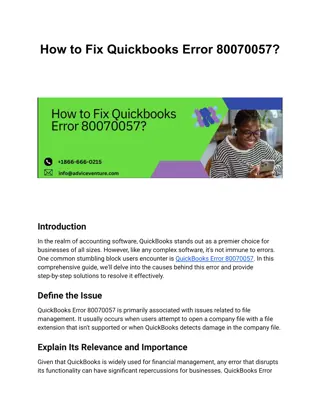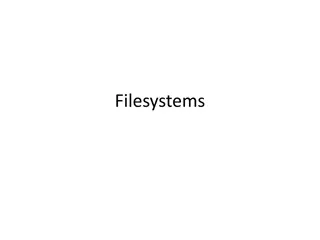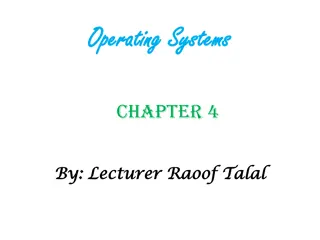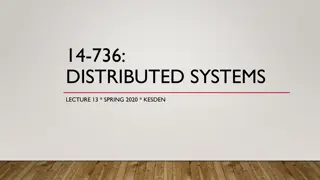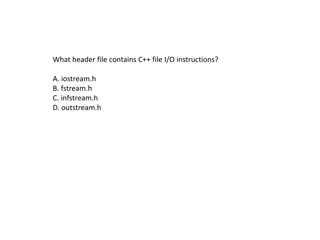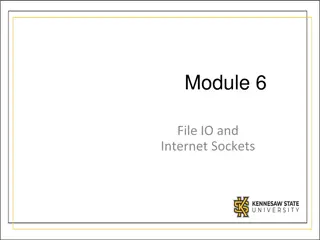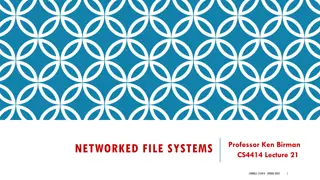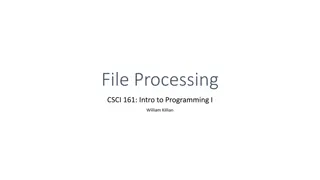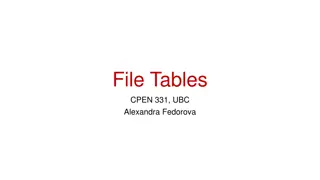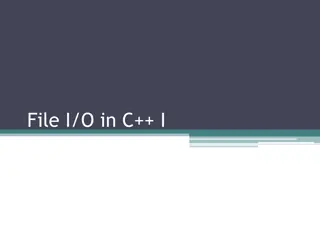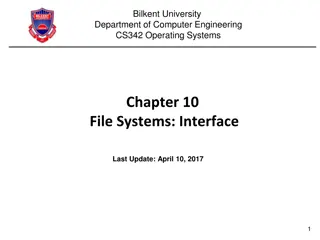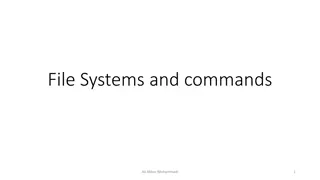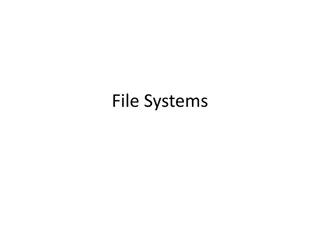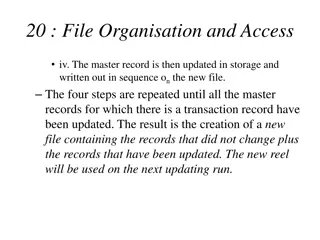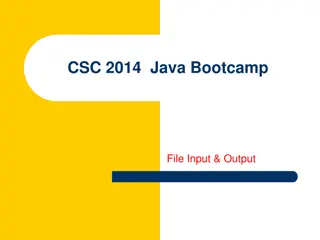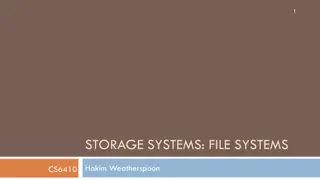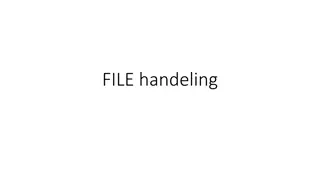
Enhancing English Language Skills with Modal Auxiliary Verbs
Explore the world of modal auxiliary verbs in English language through a comprehensive lesson plan including learning outcomes, examples, and reference materials for effective teaching and understanding. Get ready to master modal verbs for improved communication skills, with a focus on capability, past usage, and unreal situations. Join us on August 21, 2025, for an immersive learning experience.
Download Presentation

Please find below an Image/Link to download the presentation.
The content on the website is provided AS IS for your information and personal use only. It may not be sold, licensed, or shared on other websites without obtaining consent from the author. If you encounter any issues during the download, it is possible that the publisher has removed the file from their server.
You are allowed to download the files provided on this website for personal or commercial use, subject to the condition that they are used lawfully. All files are the property of their respective owners.
The content on the website is provided AS IS for your information and personal use only. It may not be sold, licensed, or shared on other websites without obtaining consent from the author.
E N D
Presentation Transcript
W We el lc co om me et to oA Al ll l U A Date-8/21/2025 uttam01712310595@gmail.com
U A Identity Subject Uttam Adhikary [ BA Hon s , MA, B Ed, M Ed ] Assistant Head-teacher, Mahilara A. N. High School Gournadi, Barishal. E-mail cum Cell Phone: uttam01712310595@gmail.com English For Class- IX & X Thursday, August 21, 2025 uttam01712310595@gmail.com 2
U A Could Can Will Should May Shall Dare Must Might Need Had better Going to Have to Used to It s better Manage to Thursday, August 21, 2025 3 uttam01712310595@gmail.com
U A Today s Lesson- Modal Auxiliary Verb Thursday, August 21, 2025 uttam01712310595@gmail.com 4
Modal auxiliary Verbs U A After the End of the After the End of the lesson, lesson, Students will be able to- * explain the modal verbs * use the modal verbs * and so Learning Outcomes Thursday, August 21, 2025 uttam01712310595@gmail.com 5
Modal auxiliary Verbs U A Presentation- As Below: Thursday, August 21, 2025 uttam01712310595@gmail.com 6
Modal auxiliary Verbs U A Modal Auxiliary Verb Mode Modal Auxiliary Example Example: 1) I can play chess. 2) Would you mind to take it? 3) You have to do it. 4) I am going to build a building. Thursday, August 21, 2025 uttam01712310595@gmail.com 7
Modal auxiliary Verbs U A Reference - Raymond Murphy Thursday, August 21, 2025 uttam01712310595@gmail.com 8
Modal auxiliary Verbs U A Modal Verb : Modals Can Meaning / (Capability) Example 1. We can see the lake from our bed room. 2. Can you speak any foreign language? 1. I could understand what you said. 2. She could do what you wanted. ( ), (The past of can ) Could (in special case where could cannot be used) 1. The fire spread through the building quickly but was able to/manage to scape. (be, may) able to, manage to Could / could have Can t (be/MV) 1. I m so angry with him. I could kill him. 2. I was so tired. I could have slept for a week. 1. You have just eaten. So can t be hungry. (Unreal Past) not possible May & Might - 1 1. It may be true. or It might be true. 2. He might be having lunch. 3. He may not have been feeling well. (In negative) ( ) Possibility/Perhaps Thursday, August 21, 2025 uttam01712310595@gmail.com 9
Modal auxiliary Verbs U A Modals Meaning Example May & Might - 2 Must & Have to 1. Take an umbrella with you. It may rain. 2. Jony might be able to help you. 1. If I can t meet you, you must phone me. 2. You can t turn left here, you have to turn right. 1. You mustn t remain silent because it is open-secret now. 2. We have got plenty of time. So we needn t hurry. 1. I m going to build a house within a month. ( ) Possibility in future Necessary to do something Mustn t, Needn t (be) going to express near future (be) about to very near future 1. The car is about to start. The house is about to fall be(am/is/are) to as like as continuous form 1. This is to certify that she is an ideal girl. , (advice, opinion) Should (1) 1. You look tired. You should go to bed. 2. I wonder where Liza is. She should be here now. 1. They insisted that should have dinner with them. 2. I demanded that he should apologize. 3. What do you suggest I should do? Should (2) propose, suggest, recommend, insist, demand. Thursday, August 21, 2025 uttam01712310595@gmail.com 10
Modal auxiliary Verbs U A Modals Meaning Example Had better 1. It is about 10 am. You had better to go now. 2. As you feel unwell, you d better not to go to work. 1. It s very cold today, we are supposed to use wrapper. ( , ) (be) supposed to ( , ) 1. It is time for us to do the work. 2. It is time we went home. 3. It s about time/It s high time he did something. 1. Can you wait for a moment, please? 2. Could I use your phone? Yes, off course? 3. Would you like to come to dinner? Yes, I d love to. 1. In our school life we used to go to school on foot. 2. I did not use to play with him. (Negative) 1. How dare you say so? 2. He dare not go at night. (Appropriate time for doing) It s time/ It s about time/It s high time Can/ Could/ Would request, offers, permission in invitation Used to (habit in past) , Dare/daren t 1. She is helpless, you need take care of her. 2. Now I m free from danger, so you needn t stay longer. Need/needn t Thursday, August 21, 2025 uttam01712310595@gmail.com 11
Modal auxiliary Verbs U A Exceptional Use Have to I had to go to hospital. (Past) Have you ever had to go hospital? (Present Perfect) I might have to go to hospital. (Infinitive after might) In question Have to What do I have to do to get a driving license? (not What have I to do?) Why did you have to go to hospital? Karena doesn t have to work on Saturdays. Thursday, August 21, 2025 uttam01712310595@gmail.com 12
Modal auxiliary Verbs U A Should & Ought to Example We use should and ought to say what is the best thing or the right thing to do. There is no difference in meaning. a) You are not very well. Perhaps you should see a doctor b) Your uncle was very kind to me, I ought to write a letter to him. c) People shouldn t break / oughtn t break their promise. We can also use should and ought to in questions to ask for advice. a) Where should I put this picture, do you think? b) It s a difficult problem. How ought we to deal with it. After should or ought to we can also use continuous form {be+(verb+ing)}. a) It s half past six already. I should be cooking tea. b) Why are you sitting here doing nothing? You ought to be working. Thursday, August 21, 2025 uttam01712310595@gmail.com 13
Modal auxiliary Verbs U A Pair Work For Practice Should and ought to: Fill in the gaps using Should or Ought to. Vicky: I can t come out to night. Rachel. I ( ) ought to do some more work. I m behind with everything. I ve got so much to do Rachel: You (1) ---------------- worry so much, Vicky. Don t panic. You (2) ------------ to relax sometimes. You (3) -------------- take a break. Vicky: I know I (4) ------------------ panic, but I do. I can t help it. Rachel: Anyway, you re doing OK, aren t you? Your results have been good. You (5) ------------ be pleased. You (6) ------------- to invent problems for yourself. ought shouldn t ought to shouldn t be ought should Noted from Oxford Practice Grammar by John Eastwood Click here for Answer. Thursday, August 21, 2025 uttam01712310595@gmail.com 14
Modal auxiliary Verbs U A Had better We use had better to say what is best thing to do in a situation. Example 1. It s cold. The children had better wear their coats 2. The neighbours are complaining. We d better turn the music down. 3. My friend is waiting for me. I d better not to be late. Note-In these examples we could use should or ought to but better is stronger than would or ought to. Thursday, August 21, 2025 uttam01712310595@gmail.com 15
Modal auxiliary Verbs U A Supposed to We use be supposed to when we are talking about the normal or correct way of doing anything. Example 1. The guests are supposed to buy flowers for the hostess. 2. Look at these cars. This area is supposed to be kept clear of the traffic. 3. The bus driver needs to concentrate. You re not supposed to talk to him. Note: Want to, would rather, etc. verb Modal Verb Thursday, August 21, 2025 uttam01712310595@gmail.com 16
Modal auxiliary Verbs U A Asking And Answering Asking And Answering Thursday, August 21, 2025 uttam01712310595@gmail.com 17
Modal auxiliary Verbs U A Group Work Give Answer to the following Questions: (1 Question is for 1 Group) Give minimum 1 Example to the mentioned every Verb. (You have to use sentence for example.) 10 Minutes Q -1: Can, Could, Will, Would, ought/ought to Q -2: May, Might, Must, have to, had to Q -3: Had better, It is high time, Able to, Manage to Q -4: Dare, Need, Should, Used to, It s about time Thursday, August 21, 2025 uttam01712310595@gmail.com 18
Modal auxiliary Verbs U A Desired Answer: Answers ought to be presented by the group leaders Thursday, August 21, 2025 uttam01712310595@gmail.com 19
Modal auxiliary Verbs U A Evaluation: (Orally) Answer of the following questions. (One by one for separate student) 1. Modal Auxiliary Verb ? 2. would 3. - It is high time---------------------------- 4. Should ought to ? 5. Used to ? 6. Had better 7. Supposed to ? Thursday, August 21, 2025 uttam01712310595@gmail.com 20
Modal auxiliary Verbs U A this more and more at home. Thursday, August 21, 2025 uttam01712310595@gmail.com 21
Modal auxiliary Verbs U A Content Reference- f Facebook Facebook Reference Books Reference Books Internet Internet Thursday, August 21, 2025 uttam01712310595@gmail.com 22
Modal auxiliary Verbs U A Thursday, August 21, 2025 uttam01712310595@gmail.com 23

